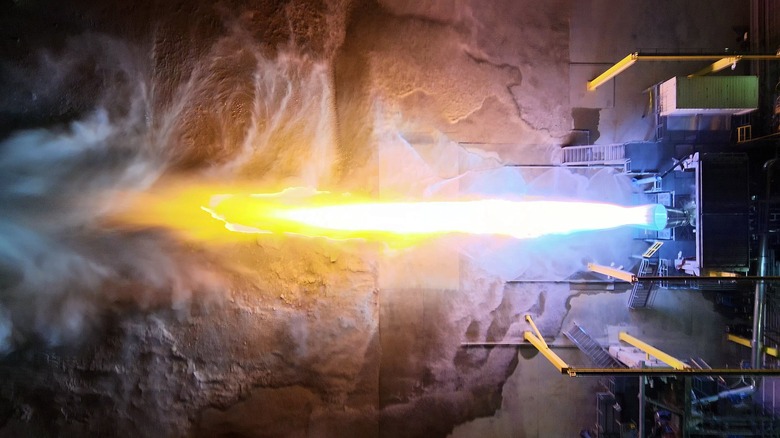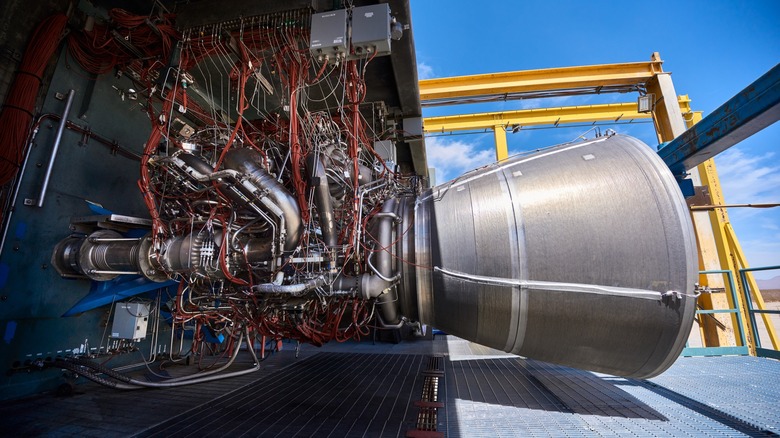Blue Origin Investigating Explosion Of Rocket Engine Made For ULA
Blue Origin, the private space company established by Amazon founder Jeff Bezos, witnessed a setback with the testing of its flagship BE-4 rocket engine in June. According to CNBC, one of the engines caught fire while testing at Blue Origin's West Texas facility about 10 seconds after firing up. No injuries were reported and an exact technical cause behind the engine explosion is yet to be found, but the company says it has zeroed down on a "proximate cause" and that it is investigating the whole ordeal.
The engine was eyeing shipment to United Launch Alliance (ULA), a joint venture between Boeing and Lockheed, and was supposed to be used on the Vulcan rocket. Notably, ULA – alongside Elon Musk's SpaceX – is one of the two main contractors for the U.S. Department of Defense, tasked with putting satellites into orbit. Tory Bruno, CEO of ULA, indicated on Twitter that the recent BE-4 engine explosion will likely involve a quick fix. ULA was hoping to utilize the engine for the second launch of its Vulcan rocket. Sources privy to the development reportedly "described having seen video of a dramatic explosion that destroyed the engine and heavily damaged the test stand infrastructure."
BE-4 is crucial for Blue Origin
Blue Origin has spent the better part of the past decade developing the BE-4 and proudly calls it the "most powerful liquefied natural gas (LNG) fueled rocket engine ever developed." While ULA is one of the key customers for BE-4, Blue Origin is also pinning its hopes on the same engine to power its New Glenn reusable launch vehicle. The company has been working on the engine in BE-4 since 2011, but it was only in 2014 that it inked the deal with ULA.
Back then, Bruno mentioned that the engine could be ready for flight within the next four years. However, Blue Origin suffered multiple powerpack failures in the following years, pushing back the development and deployment timelines. It was only in October 2022 that Blue Origin announced the delivery of two BE-4 engines to ULA that would power Vulcan's first flight. In the meantime, the launch of Blue Origin's New Glenn was pushed repeatedly to accommodate the BE-4 development delays.
New Glenn, which goes toe to toe with SpaceX's Falcon Heavy, was originally scheduled for its first flight in 2021, but it was quickly pushed to the fourth quarter of 2022. That window arrived and passed without the first launch. Ariane Cornell, a senior commerce executive at Blue Origin, said earlier this year that New Glenn will be ready for the 2024 launch of NASA's Escape and Plasma Acceleration and Dynamics Explorers (ESCAPADE) mission to Mars.

